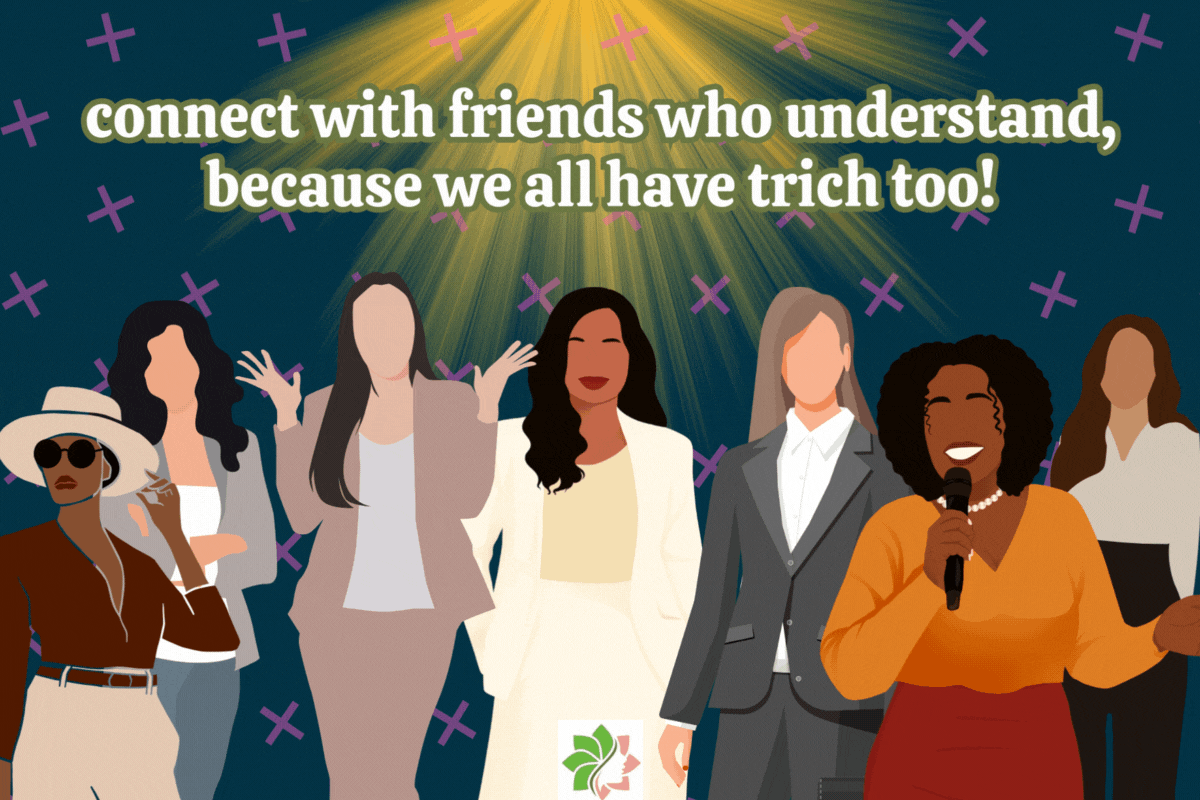If you’re living with trichotillomania (TTM), you may have already
heard of Rapunzel syndrome, or perhaps you haven’t. Either way, it’s an
important topic to discuss because understanding this rare condition can help
you make informed choices about your well-being.
Let’s dive into what Rapunzel
syndrome is, why it’s dangerous, and why seeking support is essential if you or
someone you know has this behavior.
Rapunzel syndrome is a rare condition that occurs when
someone with TTM eats the hair they pull, leading to the formation of a
hairball, known as a trichobezoar, in their stomach. This trichobezoar can
extend into the intestines, creating a large mass that’s difficult for the body
to digest or pass naturally.
Over time, these hairballs can grow in size and,
without treatment, cause severe health complications.
The condition is called "Rapunzel syndrome" as a
reference to the fairy tale character Rapunzel, who is known for her
extraordinarily long hair. In the story, Rapunzel was locked in a tower and let down
her long hair to allow her rescuer to climb up. Her hair became a symbol of
beauty and endurance.
However, in the medical condition known as Rapunzel
syndrome, long hair becomes a source of harm rather than help, as it collects
in the stomach and forms a dangerous blockage.
The name captures the unusual
and serious nature of the condition in a way that’s easy to remember.
Living with TTM can already feel isolating, and Rapunzel
syndrome adds another layer of complexity. You might feel ashamed or worried
about discussing these behaviors with others.
But remember, beautiful, you’re not alone, and there’s no
shame in seeking help for something that impacts your well-being. Many people
with TTM struggle with behaviors they don’t fully understand at first, and
reaching out to talk about it is a brave and essential step.
Talking to a healthcare provider, therapist, or trusted
loved one about hair ingestion is important because it opens the door to
getting the help you deserve.
You’re not weak or strange for experiencing this
— instead, you’re human, and reaching out shows that you are taking care of
your body and your medical condition.
If you or someone you know with TTM experiences urges to eat
their pulled hair, we can’t emphasize enough how important it is to talk to
someone. Reaching out for support can help prevent the much more dangerous
complications of Rapunzel syndrome.
Healthcare professionals, especially those familiar with
TTM, can guide you toward strategies to stop hair ingestion and manage TTM
symptoms overall.
Support groups, therapy, and peer-led programs like those
offered by HFHP are safe spaces to explore these behaviors without judgment.
We
understand the unique challenges that women with TTM face, and we’re here to
listen, support, and empower you on your journey to healing.

Rapunzel syndrome is a serious but preventable condition. If you or someone you know with TTM is eating pulled hair, please reach out immediately to your healthcare provider for support as this is a dangerous medical situation.
At HFHP, we offer compassionate, evidence-based education to
help you understand TTM, manage triggers, and build a plan that works for you.
Our
UnTrick Yourself™ program includes personalized support plans and a
friendly private community designed specifically for women like us.
Through this program, we provide practical strategies and
resources to empower you in managing your symptoms while building a team of
supportive people who can help as you strive to heal and grow.
And, you’ll connect with
other women who understand, and you’ll gain tools to help you manage and, with
time, lessen your symptoms.
Healing is possible, and taking the first step to
talk to someone, whether it’s a friend, a family member, or a healthcare
provider, can be life-changing.Join us at
healingfromhairpulling.com and take
the first step on your journey toward healing.
Together, let’s find what works
best for you!Liang, Y., Huang, L., Wang, D., Liu, T., Li, X., Wang, W., ... & Chen, L. (2024). Rapunzel syndrome in children: a retrospective review of ten cases combined with literature review in a tertiary referral center. Pediatric Surgery International, 40(1), 1-14.
https://link.springer.com/article/10.1007/s00383-024-05705-0 Marginean, C. O., Melit, L. E., Sasaran, M. O., Marginean, R., & Derzsi, Z. (2021). Rapunzel syndrome—an extremely rare cause of digestive symptoms in children: a case report and a review of the literature. Frontiers in Pediatrics, 9, 684379.
https://www.frontiersin.org/journals/pediatrics/articles/10.3389/fped.2021.684379/full






